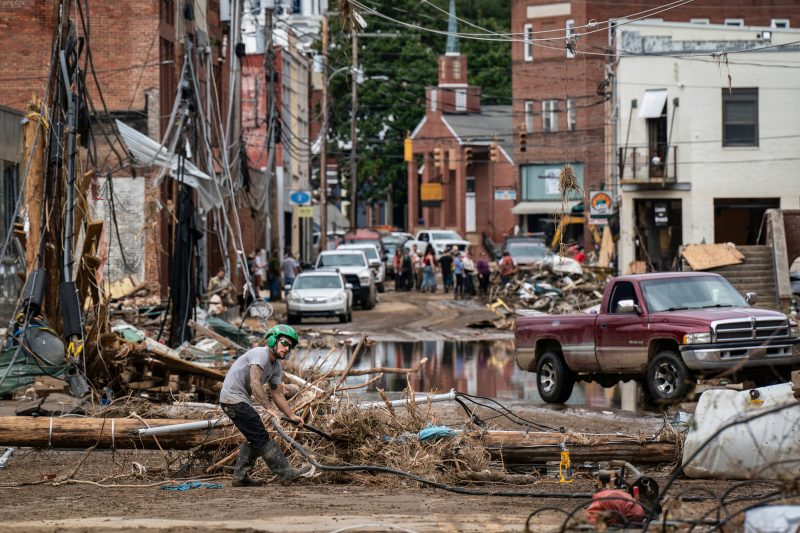Helene Devastates North Carolina Putting Voting Plans at Risk
As we delve into the heart of the matter, North Carolina has recently been rocked with a catastrophic event that has threatened to derail the smooth flow of scheduled voting exercises. Hurricane Helene, a fierce weather system, tore across the region leaving destruction in its wake, leading officials into a frantic bid to ensure that electoral processes remained on track amidst the calamity.
In an unfortunate turn of events, Hurricane Helene’s wrath was unexpected and severe, causing underprepared local governments to scramble to salvage efforts to preserve voting rights for ravaged communities. North Carolinians were caught off guard, and the mayhem that ensued necessitated an immediate plan of action to keep the voting process moving despite the adverse conditions.
Severe flooding and wind damage caused by Hurricane Helene have posed a significant challenge to voting accessibility. Physical damage to polling stations and dangerous travel conditions for hopeful voters have brought up paramount concerns about voter disenfranchisement. Reliable routes to polling stations became hazardous or were blocked entirely. It became clear that the physical results of the disaster weren’t the only problem – the hurricane had also ignited a storm of logistical complications.
In response to this crisis, efforts have been channeled towards devising feasible alternatives to secure the voting process against the disruption. Local and state governments, alongside other organisations, have geared up to implement contingency plans that would address these challenges. One of the strategies on the table is the enhancement of mail-in voting formats, in anticipation of potential restrictions or impediments to physical voting.
When it comes to mail-in voting, there are a few issues that need to be considered. These include the need for the timely delivery of ballots and voter information to every registered voter, potential delays due to displaced individuals and families, and the assurance of ballot security and accuracy in the face of potential postal service interruptions or corruptions. Therefore, while mail-in voting seems to be a satisfactory alternative, it comes with its hurdles that need to be addressed to ensure a fair and effective voting process.
Another proposed solution has been the establishment of temporary polling sites. These would serve to replace conventional polling stations that were either damaged or deemed unreachable due to the aftermath of Helene. While this solution helps address issues of accessibility, the challenge lies in thoroughly communicating these changes to voters in real-time and maintaining these temporary sites’ integrity.
Remote voting is another alternative currently under consideration. With technology playing a pivotal role in recent years, it might be the lifeline North Carolina needs during these turbulent times. By leveraging the potential of digital platforms, voters could cast their votes securely and conveniently from their homes. While this seems promising, the risk of technical glitches, possible security breaches and digital literacy disparities are certainly challenges that policymakers must consider.
The Hurricane Helene incident has brought unprecedented challenges to the electoral process in North Carolina. Yet, it has also pushed the system to evolve, to think outside the traditional means, and to leverage technology and other resources to overcome these obstacles. Despite the trials they are facing, the resilience of the people and the determination of officials are being tested and thus far, they have shown that they are not ready to let Mother Nature hijack democracy.
